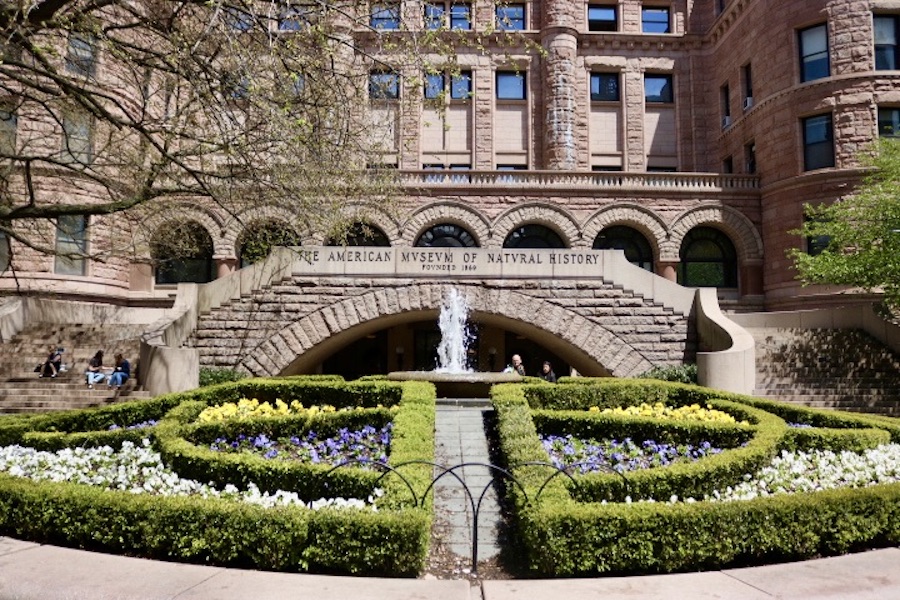
- Details
- By Jenna Kunze
The American Museum of Natural History in New York City will close two of its exhibition halls that showcase “severely outdated” representations of Native Americans, the museum’s president, Sean Decatur, wrote today in an internal email to staff.
The announcement of the exhibit closures on Saturday, Jan. 27 was in direct response to updates in a federal repatriation law that became effective earlier this month. The law, the Native American Graves Protection and Repatriation Act (NAGPRA), now requires museums and institutions holding Native American human remains and sacred objects to consult with— and receive consent from— affected tribal nations, in order to exhibit their artifacts.
After the new NAGPRA updates went live last week, museums and institutions across the country scrambled to understand and implement new changes. Chicago’s Field Museum covered several display cases containing Native cultural items. The Cleveland Museum of Art installed opaque covers on three display cases containing Native American artifacts.
At the American Museum of Natural History, the new law impacts two halls: the Eastern Woodland and Great Plains halls. Each displays artifacts that now require tribal consent for the museum exhibit. One immediate effect of the hall closures will be the suspension of school field trips.
“The number of cultural objects on display in these Halls is significant, and because these exhibits are also severely outdated, we have decided that rather than just covering or removing specific items, we will close the Halls,” Decatur wrote in the Jan. 26 memo to museum staff. He added that cases throughout the museum displaying Native Hawaiian items will also be covered while the museum initiates consultation.
The announcement comes just after an October 2023 change by the American Museum of Natural History, that updated policies for removing human remains from display cases prioritized repatriation efforts for the remains of more than 12,000 individuals AMNH holds in its facility. Of those, 2,200 are Native American, and thus fall under NAGPRA requirements.
“The Halls we are closing are vestiges of an era when museums such as ours did not respect the values, perspectives, and indeed shared humanity of Indigenous peoples,” Decatur wrote. “Actions that may feel sudden to some may seem long overdue to others.”
Ione Quigley, repatriation officer for the Sicangu Lakota Oyate, falls into the second camp.
“It took them so long,’ Quigley told Native News Online in response to AMNH’s move towards repatriation. “At the time when I first started [my] career, it was more or less a personal interest, but now it's come to a point of a personal commitment to protect and preserve.”
While it's unclear if AMNH holds any Lakota artifacts in its Great Plains Hall, Quigley said it's very likely they do. As repatriation work has gained momentum among mounting pressure for museums and institutions to fulfill ethical obligations—backed by the letter of the law—Quigley said her department has been fielding calls about artifacts and ancestors from institutions on a weekly basis.
“I saw this coming,” she said. “There’s just so much of our stuff out there.”
Tell Us What You Think
More Stories Like This
Navajo Nation Declares State Of Emergency As Winter Storm Threatens RegionThe Prediction Market Boom is Posing an Existential Threat to American Indian Gaming
NARF Condemns ICE Actions, Says Native Americans Unlawfully Detained
United Indian Nations of Oklahoma Urges Tribal Citizens to Carry ID Amid ICE Enforcement Actions
Oglala Sioux Tribe Rejects ICE Conditions for Information on Detained Members
Help us defend tribal sovereignty.
At Native News Online, our mission is rooted in telling the stories that strengthen sovereignty and uplift Indigenous voices — not just at year’s end, but every single day.
Because of your generosity last year, we were able to keep our reporters on the ground in tribal communities, at national gatherings and in the halls of Congress — covering the issues that matter most to Indian Country: sovereignty, culture, education, health and economic opportunity.
That support sustained us through a tough year in 2025. Now, as we look to the year ahead, we need your help right now to ensure warrior journalism remains strong — reporting that defends tribal sovereignty, amplifies Native truth, and holds power accountable.
 The stakes couldn't be higher. Your support keeps Native voices heard, Native stories told and Native sovereignty defended.
The stakes couldn't be higher. Your support keeps Native voices heard, Native stories told and Native sovereignty defended.
Stand with Warrior Journalism today.
Levi Rickert (Potawatomi), Editor & Publisher


